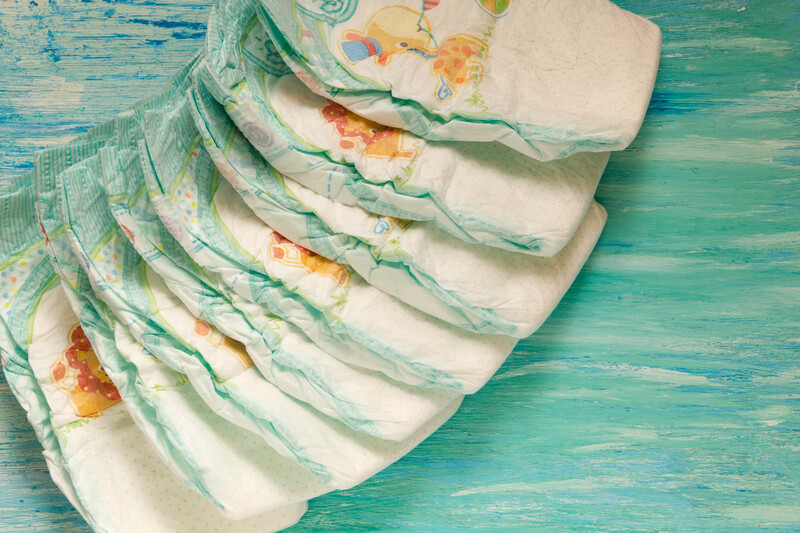Transform Your Home With These Waste Reduction Techniques
Is your household generating more garbage than you'd like? Are you looking for ways to live a more sustainable lifestyle, save money, and help the environment? If so, now is the perfect time to embrace effective waste reduction techniques at home. From reducing food waste to reusing everyday goods, you can transform your home into a greener, cleaner space. Let's explore the best strategies to minimize waste and create a positive environmental impact--right from your doorstep.

Why Is Reducing Household Waste Important?
Each year, the average family produces tons of household rubbish, from packaging materials to expired food and worn-out clothes. This trash ends up in landfills, contributing to pollution, greenhouse gas emissions, and wasted resources. By implementing waste reduction techniques, homeowners can:
- Save money by buying less and reusing what you already have
- Protect the environment by lowering landfill contributions and carbon emissions
- Conserve resources, including water, energy, and raw materials
- Support sustainable living and inspire friends and family
Adopting waste minimization strategies is not just good for the planet--it's beneficial for your household finances and well-being. Here's how to get started on the journey to a low-waste lifestyle.
1. Audit Your Home Waste Habits
The first step to cutting down on household waste is to understand where it's coming from. Complete a waste audit by observing your trash and recycling bins for a week. Take note of:
- Items you throw away most frequently (food, packaging, plastic, paper, etc.)
- Reusable or recyclable materials ending up in the trash
- Reasons for waste, such as overbuying or poor storage
This simple analysis will help you identify the main sources of waste and target your waste reduction techniques for the greatest impact.
2. Reduce Food Waste With Smarter Shopping and Storage
Food waste accounts for a significant portion of household garbage. Fortunately, it's also one of the easiest areas in the home to address with simple, sustainable practices:
Smart Grocery Planning
- Make shopping lists based on planned meals--only buy what you need.
- Avoid impulse and bulk purchases for perishable goods.
- Learn portion sizes to prevent cooking more than your family can consume.
Proper Food Storage
- Use airtight containers to prolong the shelf life of leftovers and fresh produce.
- Label foods with expiration dates for easy tracking and to avoid spoilage.
- Freeze surplus items, such as bread, herbs, and pre-cooked meals, before they go bad.
Creative Leftover Use
- Repurpose leftovers into new dishes--think casseroles, soups, or stir-fries.
- Compost kitchen scraps like vegetable peelings and coffee grounds instead of sending them to the landfill.
By prioritizing food management, you can significantly cut your household waste while boosting your budget and nutrition.
3. Ditch Single-Use Items for Reusable Alternatives
Single-use plastics and disposables contribute heavily to the world's waste crisis. Swapping them for reusable products is a game-changer. Here's how you can get started:
- Use cloth bags instead of plastic for shopping.
- Switch to glass, metal, or bamboo straws instead of single-use ones.
- Replace paper towels and napkins with washable cloth alternatives.
- Buy a reusable water bottle and coffee cup to drastically cut down on plastic waste.
- Choose beeswax wraps and silicone lids in place of cling wrap and sandwich bags.
Making these simple changes reduces waste drastically and creates a healthier home environment.
4. Embrace Bulk Buying and Minimal Packaging
Packaging, especially plastics and mixed materials, makes up a large portion of home waste. To reduce your packaging footprint:
- Shop at local bulk stores where you can bring your own containers.
- Buy produce loose rather than pre-packaged.
- Choose products with recyclable or compostable packaging.
- If you must buy packaged goods, purchase larger quantities to minimize total packaging waste per item.
This strategy not only reduces garbage but can also save money in the long term.
5. Start Composting and Recycling Correctly
Home Composting
Composting transforms organic kitchen and garden waste into nutrient-rich soil for your plants. Starting a compost bin is easy:
- Use a backyard compost bin or a countertop compost container for fruit, vegetable scraps, eggshells, and coffee grounds.
- Avoid composting meat, dairy, or oily foods, which attract pests.
- Mix in carbon-rich materials like dried leaves or paper towel rolls to balance your compost.
- Turn your pile every few weeks to aerate it and speed up decomposition.
This not only cuts home waste significantly but provides free fertilizer for your garden.
Recycling Best Practices
Recycling is only effective if done correctly. Common mistakes, such as putting food-contaminated containers or non-recyclable plastics in the bin, can contaminate entire loads. Follow these tips:
- Clean containers thoroughly before recycling.
- Check local guidelines to see which plastics, papers, and metals are accepted.
- Never recycle plastic bags or soiled food containers--they belong in the trash or at special collection points.
6. Upcycle and Donate Items Instead of Throwing Them Away
Before tossing out old items, consider if they can be given a second life. Upcycling transforms "junk" into useful or decorative objects, while donations keep usable goods out of landfills and support your community:
- Turn glass jars into storage containers, vases, or candle holders.
- Use old T-shirts as cleaning rags or repurpose them into quilts or tote bags.
- Donate gently used clothes, electronics, toys, and appliances to local charities or thrift stores.
- Create DIY projects such as pallet furniture, tin can plant pots, or refurbished decor.
These habits are essential waste reduction techniques that make your home more creative, organized, and sustainable.
7. Opt for Digital Over Paper Whenever Possible
Minimizing paper use reduces the burden on forests and cuts down clutter at home. Try these switches:
- Choose digital bills, statements, and subscriptions over paper mail.
- Read e-books and digital magazines instead of printed versions.
- Switch to digital notes and shopping lists with your smartphone or computer.
- Reuse the back of old papers for notes, kids' drawings, or scrap lists.
Less paper usage is better for the planet and makes organizing your home easier.
8. Choose Quality Over Quantity -- Buy Less, Buy Better
Another crucial waste minimization strategy is mindful shopping. Rather than purchasing cheap, disposable goods, invest in quality items that last longer and perform better. Remember:
- Research products for durability, repairability, and eco-friendliness.
- Purchase only what you truly need, avoiding clutter and unnecessary waste.
- Support brands with ethical manufacturing and minimal, recyclable packaging.
- Repair or maintain belongings instead of replacing them at the first sign of wear.
This approach is at the heart of a waste-reducing, eco-friendly household.
9. Establish a Household Waste Reduction System
Sustainable changes are easier to maintain with a clear, family-wide system:
- Set up recycling, composting, and trash bins in accessible locations.
- Label each bin clearly for correct use.
- Educate family members about what goes where--get kids involved with fun games or reward charts.
- Regularly review your household waste practices and progress together.
Engaging your entire household ensures your waste reduction effort sticks and becomes second nature.

10. Spread the Waste Reduction Movement in Your Neighborhood
Your personal actions can inspire change all around you! Share your journey and tips with neighbors and friends via social media, local groups, or community events. Consider:
- Hosting a swap or donation drive for clothing, books, and toys.
- Starting a neighborhood compost program or community garden.
- Organizing workshops on upcycling, recycling, or zero-waste living.
- Encouraging local schools or organizations to adopt sustainable practices.
Together, communities can multiply the positive impact of individual waste reduction strategies.
Conclusion: Start Transforming Your Home with Waste Reduction Techniques Today
Reducing household waste doesn't require a radical lifestyle change. Instead, a series of small yet effective steps--each building on the last--can dramatically reduce the amount of trash your home produces. By auditing your waste, cutting food waste, swapping single-use items for reusables, choosing minimal or compostable packaging, and making the most of recycling, you put sustainability into action every day.
Remember, it's not about perfection, but progress. Each plastic bag refused, each meal planned, and each broken item mended instead of thrown away makes a difference. Transform your home with these waste reduction techniques and pave the way for a greener, cleaner future--one habit at a time.
Ready to begin? Choose one or two strategies from above and put them into practice today. Your home, wallet, and the planet will thank you!